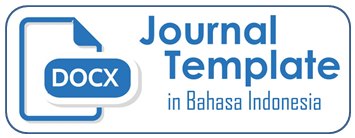TRIPLE HELIX DAN PERKEMBANGAN INOVASI DAERAH, TINJAUAN TERHADAP PERAN AKUNTANSI DALAM KEBERLANJUTAN INDUSTRI KECIL MENENGAH
DOI:
https://doi.org/10.26486/jramb.v11i1.4587Abstract
Regional Innovation System (SIDa) plays a crucial role in enhancing knowledge-based economic competitiveness at the regional level. This study employs a Systematic Literature Review (SLR) approach to explore the concept of the Triple Helix in advancing regional innovation and the role of accounting in strengthening small and medium-sized enterprises (SMEs). Through a review of existing literature, this research aims to identify the interactions between academia, government, and industry in creating an inclusive and sustainable innovation ecosystem. The study finds that the success of the Triple Helix collaboration depends on the role of government as a facilitator, universities as sources of innovation, and SMEs as users of technology. The Triple Helix model provides a strong conceptual foundation for understanding and developing an effective SIDa. A successful SIDa heavily relies on strong synergy and collaboration among universities, industry, and government at the regional level. Accounting can empower SMEs by providing sound business knowledge, which is essential for building partnerships and accessing funding. Accounting thus serves as a critical foundation for the growth and sustainability of SMEs within the regional innovation ecosystem. This article is expected to contribute to the formulation of strategic policies aimed at strengthening SIDa through a collaborative approach.
References
Afzal, M. (2013). Are science valleys and clusters panacea for a knowledge economy? An investigation on regional innovation system (RIS)-concepts, theory and empirical analysis. Asian Research Policy, 4, 114–125. http://eprints.usq.edu.au/24143
Ahamer, G. (2024). Improving science-business communication through a structured dialogue in Georgia. International Journal of Global Environmental, 23(2), 191–238. https://doi.org/https://doi.org/10.1504/IJGENVI.2024.142208
Ahmed, F., Rahman, M. M., & Haque, M. (2011). Constraints of Manufacture based Small and Medium Enterprise (SME) Development in Bangladesh. Journal of Social and Development Sciences, 1(3), 91–100. https://doi.org/https://doi.org/10.22610/jsds.v1i3.632.
Aidhi, A. Al, Harahap, M. A. K., Rukmana, A. Y., Palembang, S. P., & Bakri, A. A. (2023). Peningkatan Daya Saing Ekonomi melalui peranan Inovasi. Jurnal Multidisiplin West Science, 2(02), 118–134. https://doi.org/10.58812/jmws.v2i02.229
Asmara, A. Y., & Kusumastuti, R. (2021). Innovation Policy Implementation in Indonesia: Perspective of Triple Helix. STI Policy and Management Journal, 6(1), 1–19. https://doi.org/10.14203/stipm.2021.290
Barry, T. A., Lepetit, L., & Strobel, F. (2016). Bank ownership structure, lending corruption and the regulatory environment. Journal of Comparative Economics, 44(3), 732–751. https://doi.org/https://doi.org/10.1016/j.jce.2015.08.003
Bayramova, G. (2024). Fostering Innovation Ecosystems: The Role of Knowledge Economy in Regional Development. NAKHCHIVAN STATE UNIVERSITY SCIENTIFIC WORKS, 1(127), 85–92. https://doi.org/10.30546/155244.2024.2.127.009
Beynon, M. J., Jones, P., & Pickernell, D. (2021). Innovation and the Knowledge-Base for Entrepreneurship: Investigating the drivers of SME Innovation across European Regions using fsQCA. Entrepreneurship and Regional Development, 1–47. https://doi.org/https://doi.org/10.1080/08985626.2021.1872936
Brink, T., & Madsen, S. O. (2016). The triple helix frame for small- and medium-sized enterprises for innovation and development of offshore wind energy. Triple Helix, 3(1). https://doi.org/10.1186/s40604-016-0035-8
Carayannis, E. G., & Campbell, D. F. (2014). Developed democracies versus emerging autocracies: arts, democracy, and innovation in Quadruple Helix innovation systems. Journal of Innovation and Entrepreneurship, 3(1), 1–23. https://doi.org/10.1186/s13731-014-0012-2
Cooke, P. (2001). Regional innovation systems, clusters, and the knowledge economy. Industrial and Corporate Change, 10(4), 945–974. https://doi.org/10.1093/icc/10.4.945
Cooke, P., & Memedovic, O. (2006). Regional Innovation Systems as Public Goods. UNIDO.
Culkin, N. (2016). Entrepreneurial universities in the region: the force awakens? International Journal of Entrepreneurial Behaviour and Research., 22(1), 4–16.
Danson, M., & Todeva, E. (2016). Government and Governance of Regional Triple Helix Interactions. Industry and Higher Education, 30(1), 13–26. https://doi.org/10.5367/ihe.2016.0293
Davis, A., & Wagner, B. (2024). Understanding the role of ‘sense of place’ in the production and consumption of innovation districts. Innovation: Organization and Management, 00(00), 1–15. https://doi.org/10.1080/14479338.2024.2363258
Elsebaie, N., Fokina, O., Lukashenko, I., Mottaeva, A., & Fatkullina, A. (2023). Territorial expansion and sustainable development: a case study of regional small businesses. BIO Web of Conferences, 65. https://doi.org/10.1051/bioconf/20236503002
Farinha, L., Ferreira, J. J., Ranga, M., & Santos, D. (2020). Regional Helix Ecosystems and Economic Growth. Studies on Entrepreneurship, Structural Change and Industrial Dynamics, 1–9. https://doi.org/10.1007/978-3-030-47697-7_1
Farr-Wharton Dr, R. S., Farr-Wharton, B., & Brunetto, Y. O. (2014). Regional Development: The Importance of a Relationship with Government. Journal of Economic and Social Policy, 16(2), 0_1,0_2,1--14. http://search.proquest.com/docview/1628378877?accountid=14732%5Cnhttp://bd9jx6as9l.search.serialssolutions.com/?ctx_ver=Z39.88-2004&ctx_enc=info:ofi/enc:UTF-8&rfr_id=info:sid/ProQ:abiglobal&rft_val_fmt=info:ofi/fmt:kev:mtx:journal&rft.genre=article&rft.jt
Filipovic, M., Nikolic, M., & Despotovic, D. (2016). Enterprises in The Knowledge-Based Economy. Ekonomika Preduzeca, Januari 12, 239–248.
Fitriani, S., Wahjusaputri, S., & Diponegoro, A. (2019). Success Factors in Triple Helix Coordination: Small-Medium Sized Enterprises in Western Java. Etikonomi, 18(2), 233–248. https://doi.org/10.15408/etk.v18i2.11548
Korsching, P. F., & Allen, J. C. (2004). Locality based entrepreneurship: A strategy for community economic vitality. Community Development Journal, 39(4), 385–400. https://doi.org/https://doi.org/10.1093/cdj/bsh034
Lee, G. L. (1991). The Role of Technology in Small and Medium‐sized Enterprises. Integrated Manufacturing Systems, 2(4), 9–13. https://doi.org/https://doi.org/10.1108/EUM0000000002080
Leydesdorff, L. (2000). The triple helix: An evolutionary model of innovations. Research Policy, 29(2), 243–255. https://doi.org/10.1016/S0048-7333(99)00063-3
López, O. L., & Hiebl, M. R. W. (2015). Management accounting in small and medium-sized enterprises: Current knowledge and avenues for further research. Journal of Management Accounting Research, 27(1), 81–119. https://doi.org/10.2308/jmar-50915
Maninggar, N., Hudalah, D., Sutriadi, R., & Firman, T. (2018). Low-tech industry, regional innovation system and interactor collaboration in Indonesia: The case of the Pekalongan batik industry. Asia Pacific Viewpoint, 59(3), 249–264. https://doi.org/https://doi.org/10.1111/apv.12193
Musneh, S., Ambad, S., & Roslin, R. (2021). A review on Innovation and its Strategic Importance to the Growth of Small and Medium Enterprises (SMEs). Malaysian Journal of Social Sciences and Humanities (MJSSH), 6(2), 275–281. https://doi.org/https://doi.org/10.47405/mjssh.v6i2.664
Omar, N. A., Aris, H. M., Nazri, M. A., Jannat, T., & Alam, S. S. (2022). Does the relationship marketing orientation of an entrepreneur support agency improve performance? Evidence from small- And medium-size enterprises in Malaysia. PLoS ONE, 17(6 6), 1–24. https://doi.org/10.1371/journal.pone.0269319
Pachouri, A., & Sharma, S. (2016). Barriers to Innovation in Indian Small and Medium-Sized Enterprises. SSRN Electronic Journal. https://doi.org/10.2139/ssrn.2838109
Petruzzelli, A. M., & Murgia, G. (2023). A multilevel analysis of the technological impact of university-SME joint innovations. Journal of Small Business Management, 61(4), 1896–1928. https://doi.org/10.1080/00472778.2021.1874003
Prihastiwi, D. A., Arifah, S., Wulandari, E., Ratnasari, E. D., Wahyudiningsih, T. S., Wulandari, C., & Wahyudiarti, M. (2025). Penguatan Sistem Monitoring Stunting Berbasis Digital dalam Mendukung Peningkatan Kesejahteraan Masyarakat di Desa Salam Kecamatan Salam Kabupaten Magelang.
Solow, R. (1997). Perspectives on growth theory. A Macroeconomics Reader, 8(1), 45–54. https://doi.org/10.4324/9780203443965.ch27
Tan, M. (2019). Kebijakan Inovasi daerah dalam Penyelenggaraan Pemerintahan Daerah. In (Power Point Slides) Bidakara Hotel, Jakarta: Litbang Inovasi Daerah, Kemendagri RI.
Tunjungsari, H. K., Ie, M., Utama, D. W., Mawardi, V. C., Solikhah, N., Yukianti, C. R., Ayunda, S., & Buana, M. (2023). International Brand Image Development for MSMEs: Case of Legit Crackers. 1(4), 2754–2761.
Warnke, P., Koschatzky, K., Som, O., Stahlecker, T., Nabitz, L., Braungardt, S., Cuhls, K., Dönitz, E., Güth, S., Plötz, P., Zanker, C., & Zenker, A. (2016). Opening Up the Innovation System Framework Towards New Actors and Institutions. Innovation Systems and Policy Analysis, 49(49), 2010–2012.
Zakaria, H., Kamarudin, D., Fauzi, M. A., & Wider, W. (2023). Mapping the helix model of innovation influence on education: A bibliometric review. Frontiers in Education, 8(March). https://doi.org/10.3389/feduc.2023.1142502
Downloads
Published
Issue
Section
License
Copyright (c) 2025 Siti Arifah, Rochmat Aldy Purnomo, Anugerah Yuka Asmara, Dhian Kusumawardhani, Adi Santoso

This work is licensed under a Creative Commons Attribution-NonCommercial-ShareAlike 4.0 International License.
Authors who publish with (JRAMB) Jurnal Riset Akuntansi Mercu Buana agree to the following terms:
Authors retain copyright and grant the JRAMB right of first publication with the work simultaneously licensed under a Creative Commons Attribution License (CC BY-SA 4.0) that allows others to share (copy and redistribute the material in any medium or format) and adapt (remix, transform, and build upon the material) the work for any purpose, even commercially with an acknowledgement of the work's authorship and initial publication in JRAMB. Authors are able to enter into separate, additional contractual arrangements for the non-exclusive distribution of the journal's published version of the work (e.g., post it to an institutional repository or publish it in a book), with an acknowledgement of its initial publication in JRAMB.
Authors are permitted and encouraged to post their work online (e.g., in institutional repositories or on their website) prior to and during the submission process, as it can lead to productive exchanges, as well as earlier and greater citation of published work (See The Effect of Open Access).












